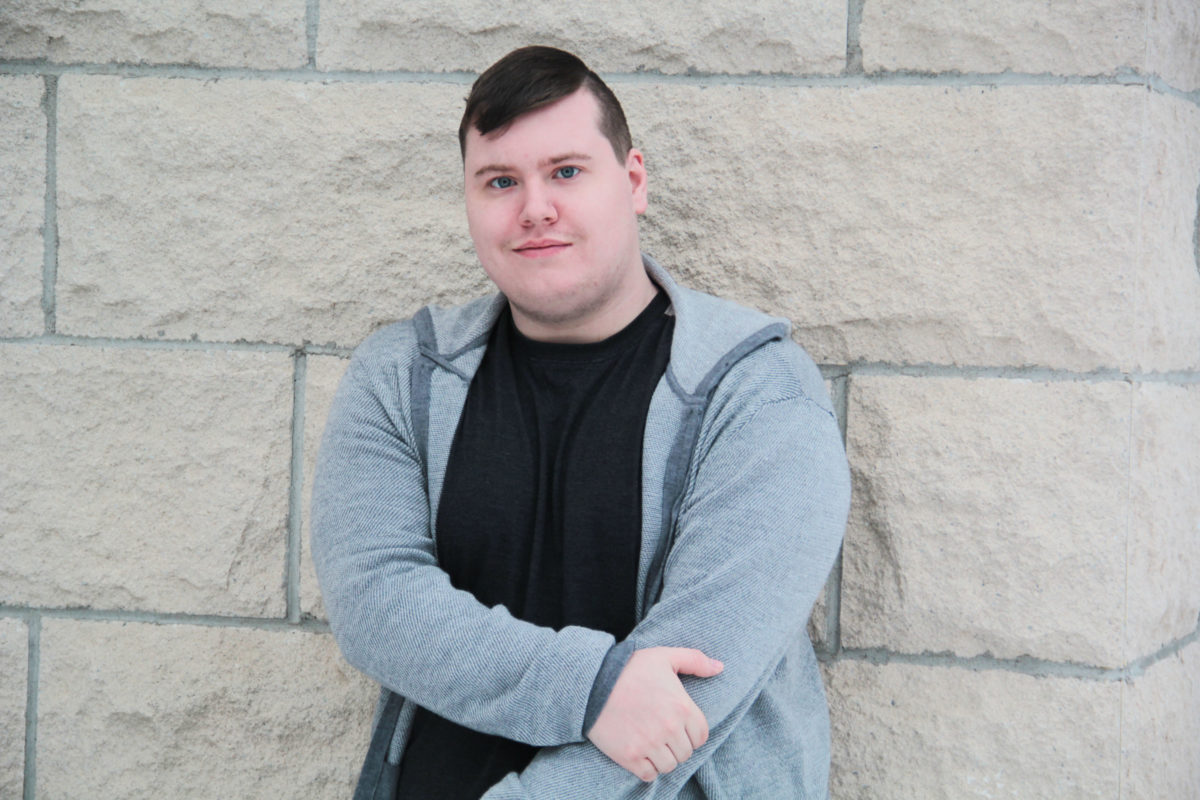When I became curious about what it was like to be neurodiverse at St. Thomas University, I didn’t expect to find anyone willing to talk to me. Neurodiversity encompasses conditions in which people’s genes result in atypical brain functioning. What’s going on inside someone’s head is so personal, how was I going to find anyone willing to open up to me about it?
Within twenty minutes of posting on Facebook my intentions to write a story, two people I knew, but never imagined they were neurodiverse, volunteered to be interviewed.
Alyson Richard is a second-year student at St. Thomas University. She loves to read and sometimes even takes a break from her academic reading to do leisure reading. She is a social person yet does not like crowds. She comes from Saint John and has Tourette’s syndrome.
Tourette’s, according to Richard, is a mental disability. She was diagnosed with Tourette’s when she was 10 years old by a specialist. According to Richard, to be diagnosed with Tourette’s a person has to have one vocal and one physical tic or involuntary action.
Richard says some people get nervous about certain tics they expect people with Tourette’s to have.
“A lot of people think that people with Tourette’s are always going to yell out swear words … but that’s actually very uncommon.”
Richard’s tics are clearing her throat and cracking her joints. She only did this occasionally throughout the interview. Despite the subtlety of these actions, Richard says she feels she is sometimes a “disruption” in her classes.
“I know that I have to tell my teachers that I have Tourette’s because I move a lot,” she says. “I don’t really mind because I would rather [tell them] than be called out.”
Richard finds professors at STU are usually accommodating of her condition.
“The accessibility people, they’re really helpful. They get me notes for all my classes … ‘cause I do have ADHD and if something catches my attention, I’m gone.”
ADHD and OCD go hand-in-hand with Tourette’s, says Richard.
Richard finds sometimes her peers have trouble accepting her condition.
“I get weird looks sometimes,” Richard says. “A lot of people don’t understand that you can’t control your tics.”
Even though Richard experiences these tics, she wants her peers to know she can still interact with them.
“Just because I don’t meet your eyes doesn’t mean I’m not listening to you.”
Spencer Dennison, also a second-year student at St. Thomas, was diagnosed with autism at six years old.
“Calling it an ‘experience’ is fitting in when it happened and not so fitting afterwards because eventually it became everything I knew. Really, it was everyone else’s experiences,” says Dennison.
He explains those around him didn’t know how to treat him as a person and just treated him as a “specimen.”
“People started using oven mitts around me.”
The effects of autism for Dennison are less visible than the effects of Tourette’s for Richard. Yet they still impact his life by affecting the way he thinks. The social impact of autism is the most difficult part of his experience at STU.
“I feel like I have to edit everything I say before I say it because I don’t know what’s acceptable and what’s not.”
Academically, Dennison finds STU “incredibly accommodating.” But he would like to see STU’s population have a better general understanding of what it’s like to have autism. He describes his ideal community as one in which people with autism and other neurodiverse conditions and mental illness are normalized.
Dennison says people don’t necessarily have misconceptions about autism, rather they just don’t know.
“They don’t know enough. And what they do hear is almost always negative. There’s just not enough exposure.”
Dennison wants people to understand those with autism are people first, not illnesses first.
“When people hear the word autism they don’t think of people like me. They think of people who are overtly disabled and can’t communicate. Most people think of … Sheldon Cooper … They assume that people [with autism] are like that instead of like me.”
Dennison emphasizes autism does not define people.
“[People with autism] are not just the sum of their illnesses. If someone loses an arm they are not just the guy with one arm.”

